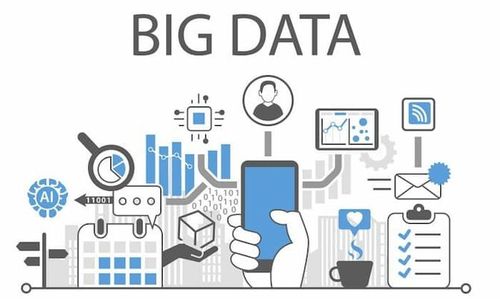What are the best big data software tools?

Jenn К
author of all this stuff
The modern world is hard to imagine without Big Data technologies that operate the millions and trillions amounts of information which is generated by all and every sphere of human life. Today it is customary to distinguish several Big Data software categories such as:
- Big Data Analytics Software;
- Big Data Processing and Distribution Software.
Each category tool is used for organizing, managing, and analyzing the huge amounts of data generated by modern networks, products, and platforms.
Best Big Data Software Tools:
Hadoop is the most recognizable and common open-source software framework that aims to storing data and running applications on clusters of commodity hardware, also Hadoop allows to quickly write and test distributed systems. Hadoop systems are used by Facebook, Linkidin, Google, eBay, etc. Hadoop has a great set of advantages, such as:
- Flexibility;
- Low Cost;
- Scalability;
- Fault tolerance;
- Speed.
But as every system Hadoop also has some pros, such as:
- Small Data concerns;
- Lack of preventive measures;
- Risky functioning.
HPCC is an open source, software data-intensive computing system platform that offers ETL and Query engine and also data management and machine learning tools as:
- Data management: Data Profiling, Data Cleansing, Snapshot Data Updates and consolidation, Job Scheduling;
- Machine learning: Linear Regression, Logistic Regression, Decision Trees, and Random Forests.
HPCC has such features as:
- Supports SOAP, XML, HTTP, REST and JSON;
- Less code for a high complexity big data tasks;
- Delivered enhance scalability and performance;
- Unable to optimizes code for parallel processing;
- ECL code compiles into optimized C++, and it can also extend using C++ libraries.
The Qubole provides such Big Data tools as SQL query tools, notebooks, and dashboards. Also the Qubole delivered a single, shared infrastructure, analytics, and AI/ML workloads, Hadoop, Presto, TensorFlow, Airflow, Hive, etc. Also:
- Its open-source engines built on AWS, Microsoft and Google Clouds;
- Specializes in public cloud-based data analytics;
- Deliver actionable Alerts, Insights, and Recommendations to optimize reliability, performance, and costs;
- Provide a single platform for every use case.
Apache Storm is a simple, free and open source distributed realtime computation system that is oriented to distributed processing of large data streams. One of the main features of Apache Storm is that it can be integrated with any queueing and database system or programming language that is already used. Storm system is used by Twitter, Spotify, Yahoo!, etc. The Storm tool system uses for:
- Realtime analytics;
- Online machine learning;
- Continuous computation;
- distributed RPC;
- ETL.
Cassandra is a distributed database management system belonging to the NoSQL class that aims to cope with huge amounts of data across many commodity servers, providing high availability with no single point of failure. Cassandra is used by IBM, Apple, Instagram, eBay, Netflix, GitHub, SoundCloud and in over 1500 other companies. The Apache Cassandra database has next features:
- Single point of failure;
- DDL, DML;
- Cluster node;
- Eventual consistency of data;
- Tune consistency.

Jenn К
Author bio: author of all this stuff
